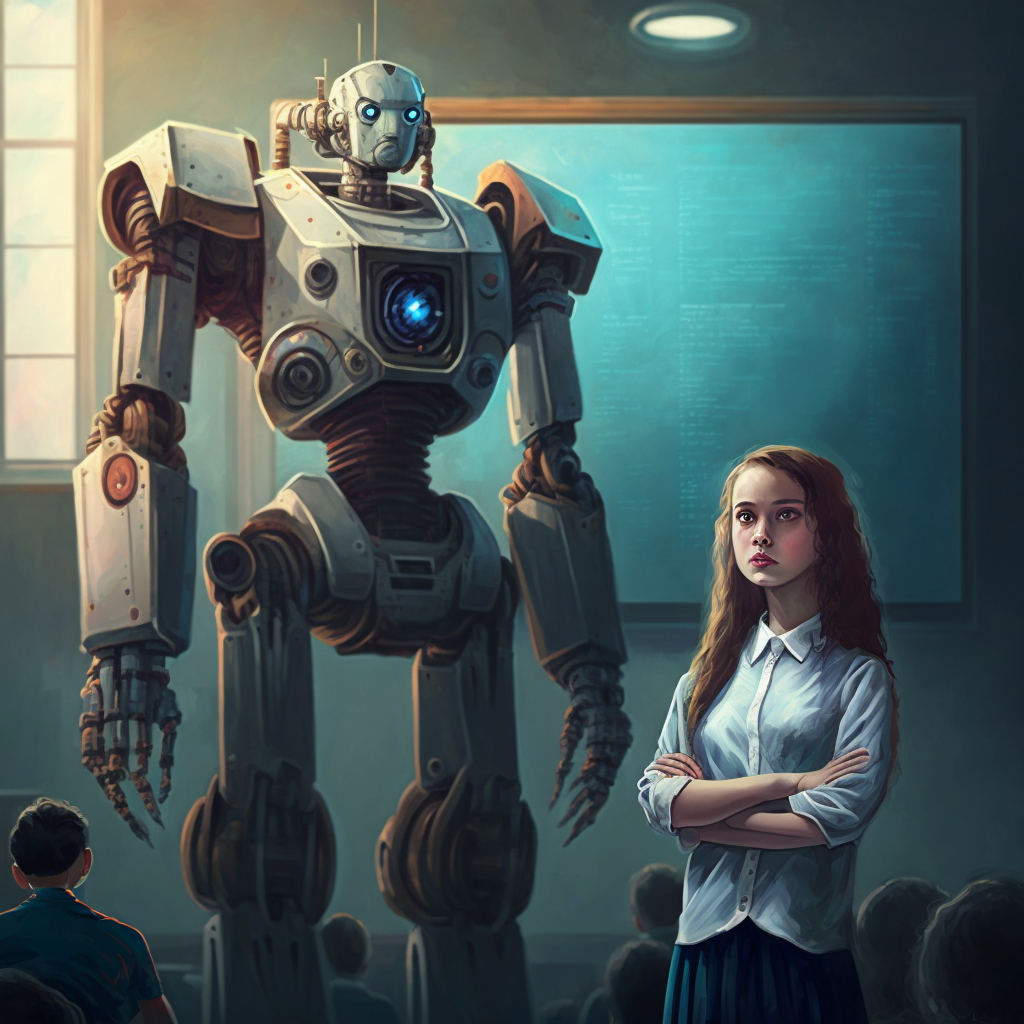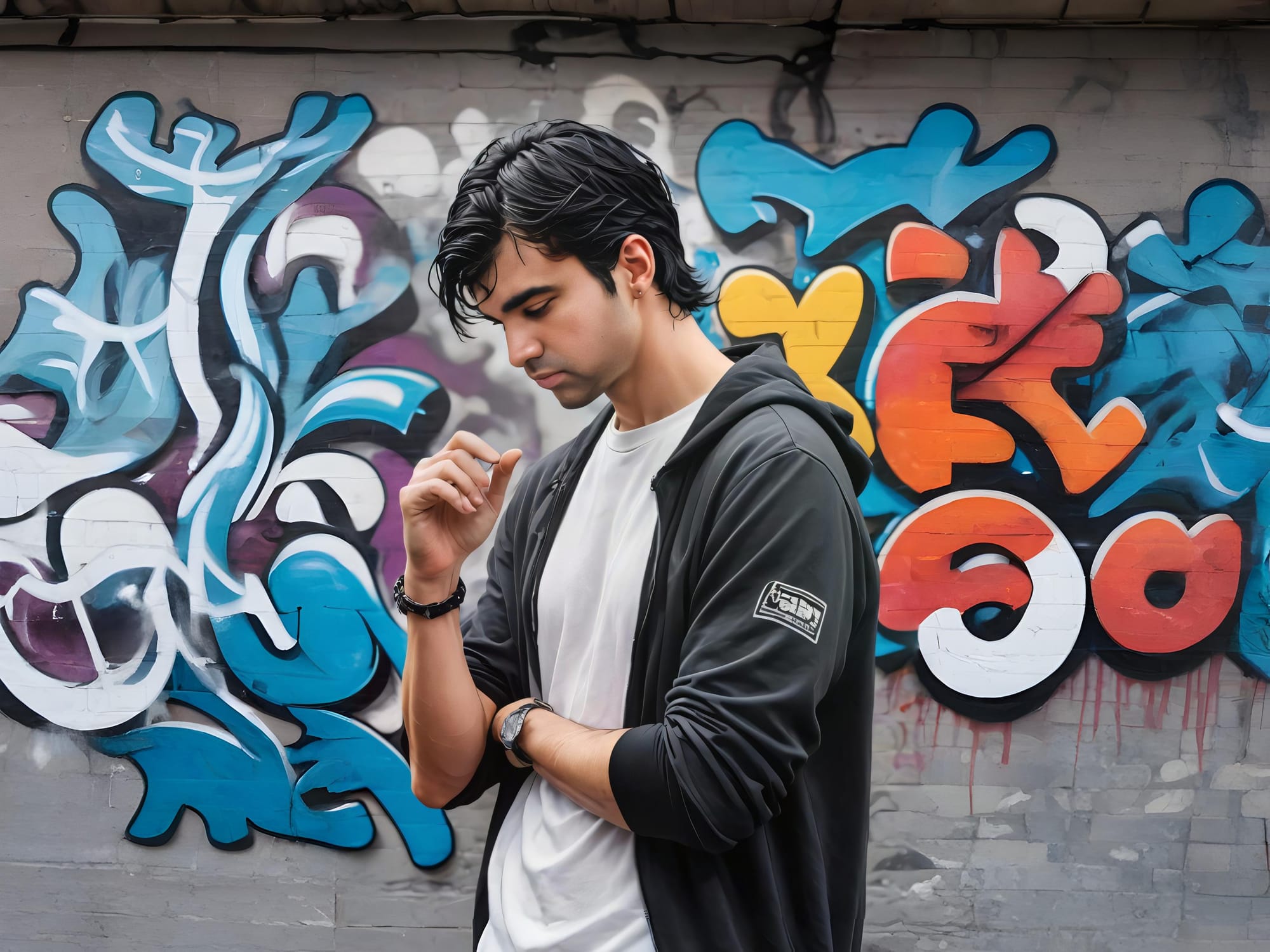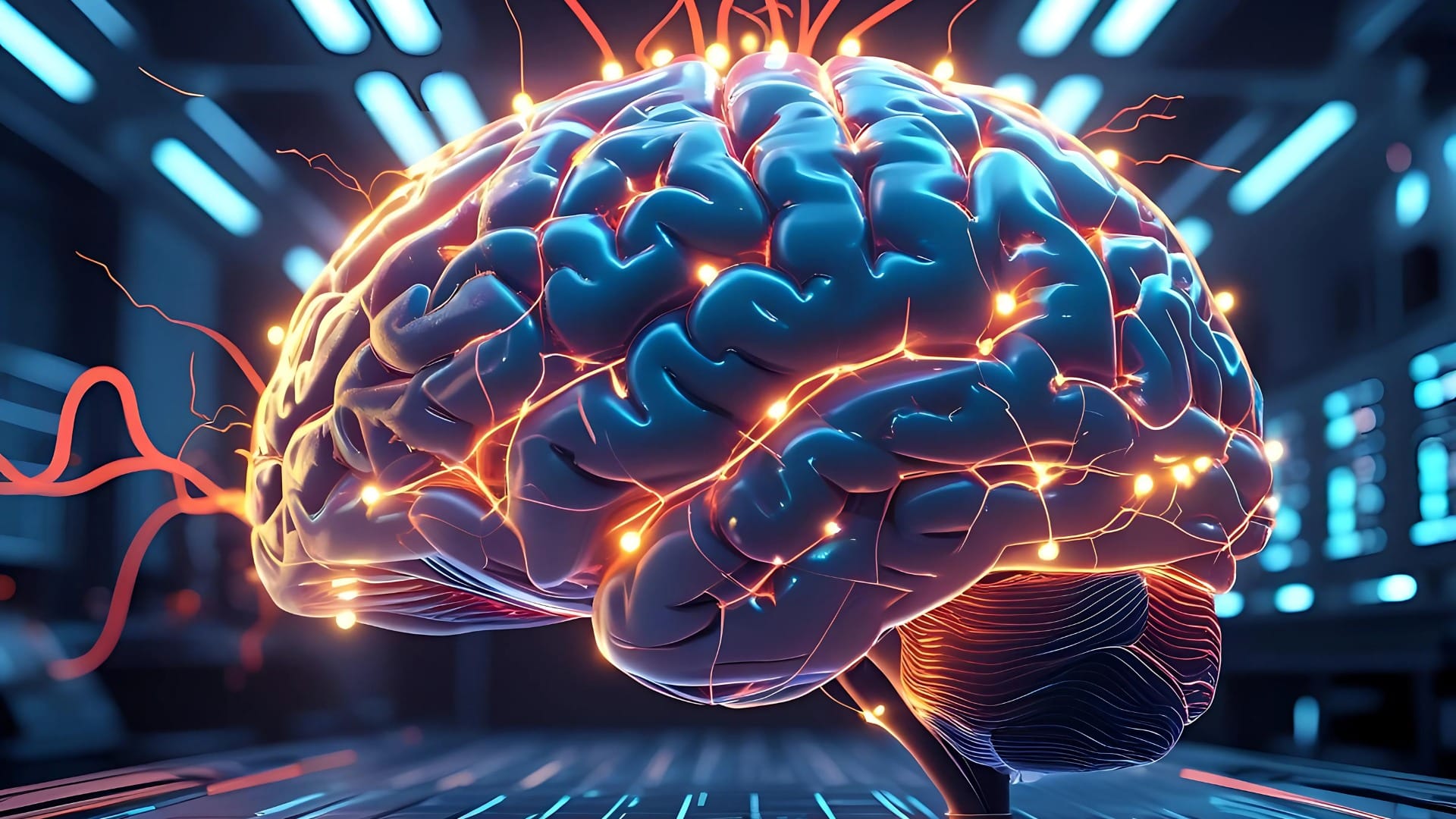Education in the Age of Robots: Marketing Legend Imagines
The rise of artificial intelligence, automation, and robotics is fundamentally transforming our economy and society.

We are at the dawn of a new era in education, Digital Marketing Legend "Srinidhi Ranganathan" says..
The rise of artificial intelligence, automation, and robotics is fundamentally transforming our economy and society. Many jobs are at risk of being replaced by machines. The types of skills and knowledge that people need to succeed in the workforce are shifting. Education systems need to adapt to this new reality.
Schools have traditionally focused on teaching children theoretical knowledge and skills that were relevant for industrial-era jobs.
Things like memorization, following instructions, and basic literacy and math were prioritized. But in an age where AI systems can memorize huge amounts of information, follow complex instructions, and even demonstrate basic literacy, these types of skills are no longer enough.

The key skills for the future are things like critical thinking, creativity, complex problem-solving, collaboration, and emotional intelligence. These skills need to become a much larger focus in education. Curricula need to emphasize real-world, hands-on learning, interdisciplinary thinking, and developing a growth mindset.
Children today need to be lifelong learners to keep up with the pace of change. Traditional approaches where students go to school for a fixed number of years and are then done with learning will no longer work.
People will need to continuously upgrade and reinvent their skills to work with advanced technologies. Schools need to spark a sustained love of learning that continues into adulthood.
Teachers also need support to adapt to the changes. Their role will shift to become more that of a mentor, coach and facilitator. They need ongoing professional development to improve their own skills in areas like personalized learning, teamwork and leading collaborative student-driven projects. Teachers will need to work alongside AI and new technologies rather than be replaced by them.
Rethinking Higher Education
Higher education also needs a rethink for the robot age. There is a risk that many traditional college majors and programs will become irrelevant as AI systems get better at those kinds of cognitive tasks. Colleges need to focus on developing skills that artificial intelligence struggles with, like complex communication, critical thinking, and social/emotional skills.
Some universities are already adapting their curricula to include more interdisciplinary, project-based learning and an emphasis on lifelong learning skills.
However, many schools are still stuck in an outdated model of education designed for the industrial era. The pandemic has spurred many universities to rethink virtual and hybrid models of learning, and that may accelerate wider changes.
As online learning platforms become more sophisticated, higher education may shift to more modular and customizable programs.
Rather than a traditional four-year degree, people may earn micro-credentials and stackable credits from multiple institutions. This could make lifelong learning more attainable. Colleges may unbundle their offerings so people can choose to earn credits for only the specific skills they need.
However, some worry this model could exacerbate inequality if access to higher education becomes more about the ability to pay versus merit or need. There are also risks of key social and cultural elements of college being lost if in-person experiences are minimized. Balancing online and physical learning and making sure opportunities remain accessible to all will be important.
The future university may employ more AI and virtual reality to improve learning. Intelligent tutoring systems and AI teaching assistants can personalize instruction. Simulations and virtual recreations of real-world scenarios can enhance project-based learning. Students could take virtual field trips anywhere in the world without leaving the classroom.
With degrees and programs more modular, universities may offer more micro-credentials and stackable credits for skills in high demand. Short, flexible courses could provide just-in-time learning for rapidly changing job markets. Partnerships with employers may drive more work-based learning programs.

Cultivating a lifelong learning mindset
However, for this vision of a highly adaptable education system to become reality, it must be paired with promoting a culture of lifelong learning. From an early age, children need to develop a growth mindset, a love of new challenges, and the ability to continuously self-direct their learning. This will be key to thriving in the age of robots.
Schools can encourage lifelong learning skills through project-based learning, rewarding curiosity and experimentation, growth-focused rather than fixed mindset feedback, and teaching learning strategies...
Lifelong learning also needs to be incentivized at a societal level. This includes providing access to ongoing education and skills training for adults, especially for those in jobs at high risk of automation. Tax incentives and government subsidies can encourage both individuals and employers to invest in continuous learning.
Some countries are experimenting with providing citizens with universal basic access to higher education and skills programs. For example, Tennessee recently launched a program offering two years of free community college to all adults. Programs like these recognize that access to ongoing education will be crucial for individuals to adapt to the future economy.
Individuals will also need to cultivate the motivation and ability to independently pursue lifelong learning. Some key strategies for developing a lifelong learning mindset include:
- Maintaining a growth mindset. Believe in your ability to learn and improve over time through hard work and persistence. Intelligence is not fixed.
- Staying curious. Continuously explore new ideas and subjects that interest you. Read books, take MOOCs and online courses, attend public lectures, engage in discussions with others, etc.
- Learning how to learn. Develop effective learning strategies like spaced repetition, mnemonics, teaching concepts to others, active recall, etc. The ability to teach yourself is a key lifelong learning skill.
- Practising essential soft skills. Skills like critical thinking, communication, adaptability, and collaboration complement lifelong learning. Use opportunities in your daily life to strengthen these skills.
- Making learning a habit and part of your lifestyle. Engage in regular, ongoing learning and make continuous progress on developing skills and expertise in areas that are meaningful to you. Even small habits can go a long way.
- Keeping up with trends in your industry. Follow industry leaders and news sources to stay up to date with the latest technologies, skills, and job market trends that may impact your work. Proactively learn in-demand skills.
- Exploring interdisciplinary knowledge. The most interesting ideas often happen at the intersection of disciplines. Make connections across domains and apply insights from one field to another.
- Changing your mindset about education. Rather than seeing education as something confined to a certain life stage, view it as continual growth and development. Learning never stops.
Fostering a love of lifelong learning may be one of the most important jobs for teachers and parents today. With technology accelerating the pace of change, continuous learning is the only way to keep up.
The ability and motivation to learn for life will be essential for the next generation to thrive in the age of robots. But they can't do it alone. Policymakers, education systems, and society as a whole must support the lifelong learning journey.
Implications for Developing Countries
While developed nations are urgently working to reform education systems and promote lifelong learning, developing countries face even greater challenges. Many are still focused on achieving universal access to primary and secondary education. How can they adapt to technological changes when more basic needs have yet to be met?
It is unfair to expect developing countries to reinvent their education systems for the robot age without first establishing broader access.
However, if they do not start now, they risk falling even further behind developed nations economically and technologically. A focus on cultivating lifelong learning and skills for the future should be incorporated even at the early stages of education development.
Some strategies that may be effective and realistic for developing countries include:
- Focus on skills, not just access. Emphasize learning outcomes and skills development rather than just enrollment numbers. Skills like critical thinking and problem-solving can and should be integrated even in basic education.
- Start with primary schools. Develop lifelong learning skills and mindsets from an early age. This is more effective than trying to adapt entrenched beliefs and behaviors in secondary or higher education.
- Train teachers. Provide teachers with continuous skills development and coaching on new pedagogies centred around skills for the future. Use technology to help teachers improve and to fill gaps where teachers are lacking.
- Partner with NGOs and the private sector. Governments can work with organizations that have expertise and resources to help build more future-ready education systems. Partners can fund pilot programs and then help scale successful initiatives.
- Leverage mobile technology. Many developing countries have high mobile phone penetration even in remote areas. Mobile apps and virtual learning environments can be used to complement limited school access, especially for ongoing adult learning.
- Focus on skills training for youth and adults. Offer programs to build skills for available jobs and for the jobs of the future. Work with employers to determine in-demand skills and provide opportunities for work-based learning.
- Provide incentives for lifelong learning. Create campaigns to promote the value of continuous self-improvement through learning. Provide resources and rewards for children and adults who achieve key learning milestones. Make lifelong learning a cultural priority.
While the challenges for developing countries are significant, future-ready education is key to success in a world being transformed by new technologies. With strategic investments and policy decisions today, developing nations can secure brighter opportunities for generations to come.
Strong, consistent action must be taken to give people in all countries the chance to thrive in the age of robots. Education that kindles lifelong learning is the fire that fuels human progress. No matter a nation's stage of advancement, fostering this flame must remain a priority. Our shared future depends on it.
Next Steps Toward the Future of Education
The challenges facing education in the age of robots will require bold action. Students today need learning experiences for a future we can barely envision. But we must make progress now.
The journey of a thousand miles begins with a single step. Here are a few steps policymakers, administrators, teachers, and individuals can take to ensure education leads rather than lags in the coming decades:
- Make future-ready skills a priority in standards and curricula. Update education programs at all levels to incorporate skills like critical thinking, complex problem solving, communication, and lifelong learning. De-emphasize rote memorization and fact recall.
- Invest in teacher training and support. Help teachers develop new competencies for coaching students in skills for an AI-powered world. Provide ongoing professional development, learning communities, and classroom resources focused on pedagogies for the future.
- Rethink higher education. Consider new programs and credentials to better match job market demands. Support work-based and lifelong learning. Provide incentives for individuals and employers to invest in continuous upskilling. Make higher ed accessible to all.
- Build partnerships. Work with leading employers, nonprofits, and tech companies to help determine key skills, redesign program offerings, fund pilot programs, and scale up successful models. No institution can solve this challenge alone.
- Use technology thoughtfully. Integrate AI, virtual reality, and other advanced technologies to improve and personalize learning. But using technology to enhance human strengths rather than replace them. Focus on technologies that ignite creativity and higher-order thinking.
- Foster lifelong learning mindsets. Help students develop learning strategies, growth mindsets, and the motivation to continuously gain new knowledge and skills. Teach learning how to learn at all stages of education. Promote lifelong learning campaigns to build it into the culture.
- Start today, but take the long view. Future-ready education needs to begin now, but it is a multi-generational challenge. Have patience and sustain efforts over time. Consult experts and researchers, but also listen to voices from the front lines of schools. Learn, adapt and persist. The future is worth it.
The robots are here, but human creativity, empathy, reason, and passion will endure. Our shared destiny is one of partnership, not competition. By transforming education today, that partnership can be one of collaboration and coevolution. The future remains unwritten. Let us have the courage to fashion it well.
Spotlight on Innovation: Promising Practices for the Future
While much work remains to transform education systems on a large scale, promising models are emerging. By highlighting specific examples of schools, programs and curricula that are pioneering future-ready education, we can gain insights into practical strategies for change and pathways to scale up success.
Here are a few innovative practices worth spotlighting:
A network of micro-schools with a personalized learning model using proprietary software. Students pursue project-based curricula centred on developing life skills. Teachers act as learning coaches.
The model uses AI and data analysis to continuously adapt instruction to individual students. With investments from Mark Zuckerberg and others, AltSchool is expanding nationally and provides a glimpse into how data-driven personalization and life-skills focus could shape K-12 education.
The Independent Project is an unstructured learning program at a popular school where students propose and complete self-directed learning projects with mentor support. Projects have included community service initiatives, internships, in-depth research, and creative works. The program aims to give students opportunities to develop future skills like self-direction, adaptability and complex problem-solving. Its success has sparked interest from other schools.
Another popular school offers an unconventional university model with four years of residential study and one year of global immersion. The curriculum is designed around developing intellectual habits of mind over content, with courses on critical thinking, effective reasoning and intercultural fluency.
Students engage in collaborative online seminars while travelling to different world cities. The school aims to cultivate skills for life in a connected global community. Its graduates are gaining acceptance into competitive postgraduate programs, demonstrating the viability of its model.
These are just a few examples of many innovative education programs worldwide. While small in scale, they provide valuable illustrations of how new models can develop essential future-ready skills like digital literacy, critical thinking, creativity, self-direction, global competency and more. By analyzing emerging practices at multiple levels of education, we can piece together a mosaic of solutions that policymakers may assemble for broad adoption and tailored to their local needs. Continued experimentation is key.
A great initiative of another popular school is to transform early childhood education in England with a focus on developing lifelong learning skills and curiosity in young children using enriched environments and child-directed free play.
Educators provide opportunities for discovery, scaffolding and modelling of the acquisition of growth mindsets and learning strategies. The program aims to set children on a lifelong path to confidence in navigating change by learning through play.
These varied examples share a common commitment to developing adaptable and future-ready skills through active, self-directed learning opportunities, focus on growth mindsets, and environments where continual discovery and creation are possible.
While still emerging, programs like these point to an education model beyond traditional instructional designs toward a culture of lifelong learning and development of internal motivation to gain new knowledge and skills as technologies continue to transform the world students will shape.
By spotlighting promising new practices, it is possible to envision the education system of the future. One where students graduate not with a fixed set of facts and skills but with the ability to grow and adapt; where people continue learning well beyond any school through globally connected communities centred on creativity and empowerment.
The future is unwritten, but the calligraphy has begun. The lines call us onward to what may yet be—a world where education inspires, intelligence amplifies, and learning never ends. The canvas awaits our touch.
Technology: A Tool to Empower Rather than Replace
New technologies like artificial intelligence, virtual reality, adaptive learning software and intelligent tutoring systems have incredible potential to improve teaching and learning. But technology alone will not reform education to meet the future's demands.
How we choose to apply new tools—whether to enhance human relationships or diminish them—will shape the destiny of students and society. At each turn, we must ask: does this amplify our best qualities or subdue them?
AI systems can analyze student data to personalize instruction, identify learning gaps, and recommend high-impact interventions. But data should inform teachers, not replace them. Teachers must remain guides, mentors and champions of human development. They understand students' needs and nurture essential skills no AI system can replicate.
Virtual and augmented realities make new forms of experiential learning possible. Students can explore ecosystems, travel globally, examine molecules and more without leaving the room. But virtual experiences should extend into action. Students still need opportunities to apply knowledge through real-world problem-solving and social interactions. Technology should inspire curiosity, not curb it.
Intelligent tutoring systems and educational software can adapt lessons to individual learners at their own pace. But education is more than information absorption. Students must learn how to direct their own learning to thrive with technology as constant change becomes the norm. Schools cannot outsource self-direction, critical thinking, creativity and deeper learning to any software system.
With technology, personalized and project-based learning could keep students engaged for years beyond any diploma. But the motivation must come from within. Growth mindsets, a sense of purpose and lifelong learning habits must be instilled first. Technology can encourage continual progress on a path lit from the inside. It cannot forge the path itself.
When we see technology as a means to empower learners and educators rather than replace them, it becomes a tool for transcending human limits rather than submitting to machine limits. Students develop a voice and vision for how future technologies might serve human needs and potential. Education continues long after any formal program with a world of knowledge always at our fingertips. But wisdom must be earned, not downloaded—born of experience, judgment, imagination and heart.
The future is being written each day by how we choose to apply new tools.
Let our humanity lead in partnership with the technologies we craft to extend it.
Let education cultivate fires within and skills for fanning the flames. The light we share with future generations depends on the choice of whether or not we choose to kindle that spark in ourselves and each other, not whether artificial lamps grow bright enough to dim our own.
Technology should stoke the bonfire, not pale its glow. And those we teach must learn to build those fires anew for the future that awaits their touch. Life finds a way when there is light enough to see—and warmth enough to come together as we forge the path ahead.




